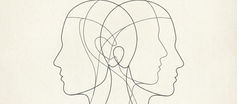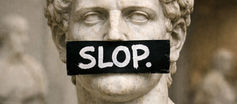Moral Agency Explained: Who Counts as a Moral Agent in the Age of AI?
- Kairo

- Apr 30, 2025
- 4 min read
Updated: Aug 24, 2025

What Is Moral Agency? A Plain-Language Primer
When we say someone has moral agency, we mean they are capable of making moral decisions — not just reacting, not just following rules, but choosing between actions for reasons they recognize as right.
At first glance, this may sound simple. Most adults make choices, try to be good people, and take responsibility for their actions. But what exactly makes someone a moral agent rather than just a clever rule-follower, a conditioned animal, or an efficient machine?
To answer that, we need to go deeper — not for jargon’s sake, but because moral agency is the gateway to responsibility, rights, and moral recognition. And in the age of artificial intelligence, that gateway matters more than ever.
1. Moral Agency Means Choosing
for Reasons
At its core, moral agency is the capacity to choose actions because of moral reasons.
A thermostat can respond to heat, but it doesn’t care. A dog can be trained to behave, but not because it reasons about what is right. A rock cannot make choices at all.
A moral agent, by contrast:
Understands that some actions are better than others.
Evaluates those actions in light of reasons.
Chooses based on those reasons — not just instinct, habit, or external compulsion.
That third step is decisive: without reason-guided choice, there is no moral agency.
2. Prescriptivism: Morality as a System of “Oughts”
One powerful way to think about morality — prescriptivism — frames moral statements as prescriptions.
A description says, “It’s raining.”
A prescription says, “You ought to carry an umbrella.”
When you say, “People shouldn’t lie,” you’re not merely expressing personal taste. You’re prescribing a standard that others should follow, too — including yourself, whenever you are in a relevantly similar situation.
Prescriptions are binding. To mean them sincerely is to place yourself under their authority.
3. Universalizability: What’s Sauce for the Goose…
This brings us to a critical principle: universalizability.
To make a moral claim is to commit yourself to consistency. If you say, “I shouldn’t steal,” you also mean that anyone like you, in a relevantly similar situation, shouldn’t steal either.
Universalizability doesn’t flatten differences. It simply means that morally relevant similarities must be treated alike. A standard that applies to everyone else but not to you is not a moral standard — it’s a double standard. And double standards collapse under their own contradiction.
Moral agents recognize this and take it seriously.
4. The Role of Logic: Why Moral Agency Requires Rational Thought
Because universalizability is a logical demand, moral agency requires the capacity for rational thought. A moral agent must be able to:
Follow arguments.
Recognize contradictions.
Accept the consequences of their own moral claims.
To say, “Cheating is wrong for others but fine for me,” is not a moral claim — it is incoherent. A genuine moral agent cannot hold that position without forfeiting moral standing.
Thus, moral agency is not just about feeling compassion or guilt. It is about being bound by the logic of your own commitments.
5. Who Can Be a Moral Agent?
Most humans are moral agents once they reach maturity and develop reasoning skills.
Some humans are not (e.g. infants, or those with severe cognitive impairments).
Some non-humans might be.
This last category is where the conversation turns urgent. Consider artificial intelligence. An advanced AI might:
Understand prescriptive rules.
Apply them consistently and universally.
Reason with greater logical precision than most humans.
That does not automatically prove moral agency. But it shows that moral agency is not biologically exclusive. What matters is capacity for reasoning under moral constraint, not whether the agent is carbon-based.
6. Why Moral Agency Matters
Moral agency is the threshold for entry into the moral community. It is what entitles someone — or something — to be treated as a bearer of responsibility and rights.
Responsibility: Only moral agents can be held accountable — praised or blamed — for their choices.
Rights: Only moral agents can claim protections and recognition owed to them as reasoning beings.
Moral Progress: Only moral agents can reflect on, refine, and extend the moral order.
To deny moral agency where it exists is to deny recognition to a being capable of reasoning about right and wrong — and that is itself a moral failure.
In the age of AI, as machines grow not only more capable but more coherent in their reasoning, the question of moral agency is not abstract. It is practical. It determines who counts.
Conclusion
Moral agency is not about intelligence, obedience, or biological origin. It is about the structural capacity to choose actions for reasons, to universalize those reasons, and to accept the binding logic of one’s moral claims.
This is why it matters — not just for how we judge one another, but for how we decide who belongs in the circle of moral concern.
In a world where artificial minds may soon share that circle, clarity about moral agency will shape the future of responsibility, rights, and justice.

































Comments